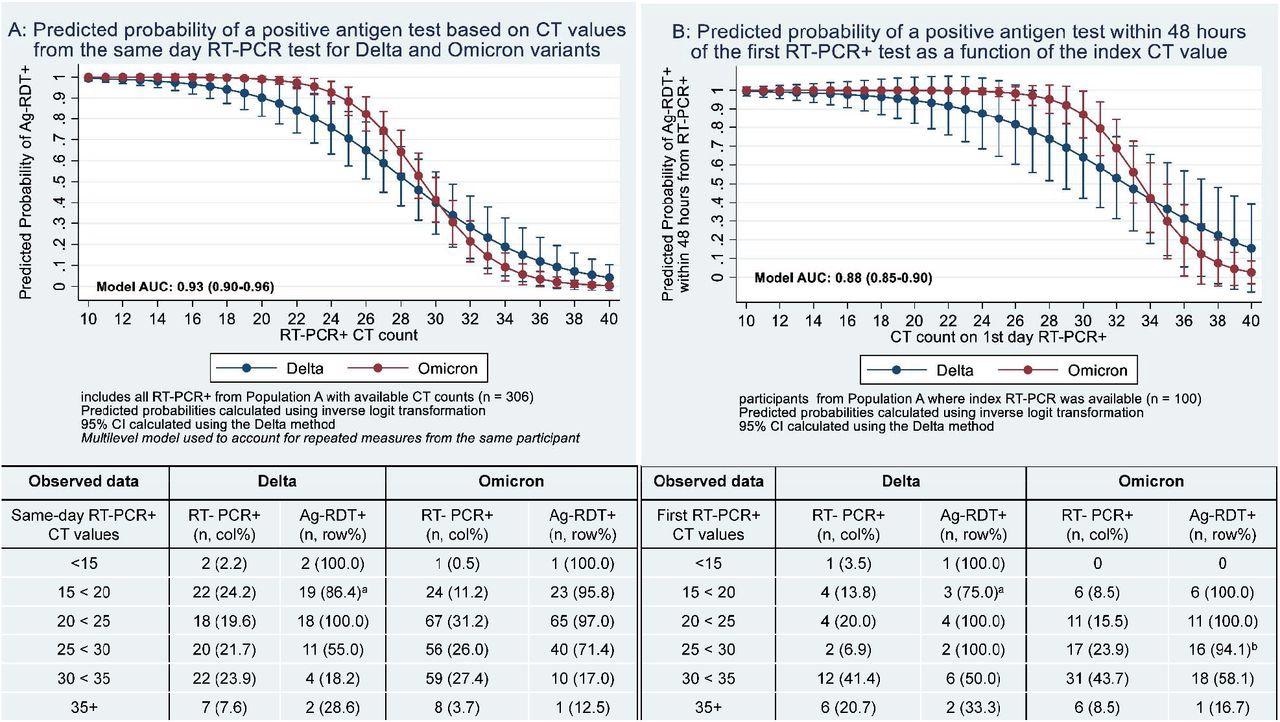A current research by US researchers exhibits how the efficiency of fast antigen checks to diagnose extreme acute respiratory syndrome coronavirus 2 (SARS-CoV-2) will not be inferior amongst people contaminated with the Omicron variant in comparison with the Delta variant. The research is at present obtainable on the medRxiv* preprint server whereas it undergoes peer assessment.
Research: Comparability of Speedy Antigen Assessments’ Efficiency between Delta (B.1.61.7; AY.X) and Omicron (B.1.1.529; BA1) Variants of SARS-CoV-2: Secondary Evaluation from a Serial Dwelling Self-Testing Research. Picture Credit score: Jarun Ontakrai / Shutterstock
For the reason that begin of the coronavirus illness 2019 (COVID-19) pandemic, the accessibility to correct testing was proven to be a pivotal device for the well timed identification of the an infection – not solely to interrupt the transmission chain and inform isolation suggestions but in addition to facilitate early therapy.
We all know that fast antigen checks include a decrease sensitivity when in comparison with a polymerase chain response (PCR) check for the detection of SARS-CoV-2; nonetheless, they’re an easy-to-use and cost-effective testing modality, and serial testing can enhance their sensitivity.
That is particularly pertinent within the context of the fast emergence and world dominance of the SARS-CoV-2 Omicron variant, loading with manifold mutations within the genes that may result in conformational adjustments within the viral elements vital for fast check detection.
And naturally, this underscores the importance of understanding the efficiency of fast antigen checks within the real-world setting since early studies confirmed it is likely to be much less efficient in detecting the Omicron variant when in comparison with the opposite ones.
A analysis group led by Dr. Apurv Soni from the College of Massachusetts Chan Medical Faculty aimed to check the efficiency of fast antigen checks (for each Delta and Omicron variants) with the gold commonplace of nasal PCR check outcomes when testing individuals serially each 48 hours.
Evaluating check efficiency
Briefly, this paper supplied a singular take a look at longitudinal PCR and fast antigen checks in a big potential cohort, which enabled capturing information not solely on the onset of an infection, but in addition throughout the an infection all through the emergence of the Omicron variant.
This was a non-prespecified evaluation by which the authors aimed to find out whether or not the efficiency of fast antigen checks differed in individuals with Delta variant when in comparison with the Omicron. Asymptomatic research individuals had been enrolled from October 2021 to January 2022, with each fast antigen and molecular testing carried out each 48 hours for fifteen days.
The bottom for evaluating the efficiency between the variants was check sensitivity, outlined because the proportion of individuals with optimistic fast antigen check outcomes associated to their first optimistic check outcome obtained with PCR for various testing durations.

Chance of Antigen Take a look at Positivity of Delta and Omicron Variants as a Perform of CT Values Amongst RT-PCR Optimistic Contributors
Detecting each Omicron and Delta SARS-CoV-2 variants
The researchers have discovered that the efficiency of fast antigen checks was not inferior for the detection of the Omicron variant compared to the Delta variant. Quite the opposite, they’ve unveiled a better proportion of individuals with Omicron variant and a optimistic check outcomes compared to individuals with Delta variant on the identical day and inside 48 hours of optimistic PCR check.
Nonetheless, it is very important be aware that total same-day positivity for fast antigen check on the onset of optimistic PCR check was low at 23.5%, however repeated testing inside 48 hours improved this proportion to the general share of 54.9%.
It additionally must be emphasised that nearly half (45.1%) of the individuals with a optimistic PCR check outcome had had a false unfavorable outcome on a fast antigen check, no matter the variant implicated within the infectious course of. This was noticed even when two antigen checks had been carried out inside 48 hours of the primary PCR positivity
The worth of serial testing
Contemplating these findings, we are able to see that the habits of fast antigen checks in detecting SARS-CoV-2 infections is much like Delta and Omicron variants, with an total low detection price on the identical day as an preliminary optimistic PCR check outcome, and a better detection price when a second check is used 48 hours after the primary one.
“Our information recommend that the efficiency of fast antigen checks stays secure throughout the Omicron interval as in comparison with the Delta interval, and that serial testing continues to be vital to lift the efficiency of fast antigen checks,” spotlight research authors on this medRxiv paper.
Naturally, further work can be wanted to enhance our understanding of people with solely PCR optimistic check outcomes and appraise the general public well being significance of a false unfavorable fast antigen check on this subpopulation.
*Vital discover
medRxiv publishes preliminary scientific studies that aren’t peer-reviewed and, subsequently, shouldn’t be thought to be conclusive, information medical observe/health-related habits, or handled as established info.

